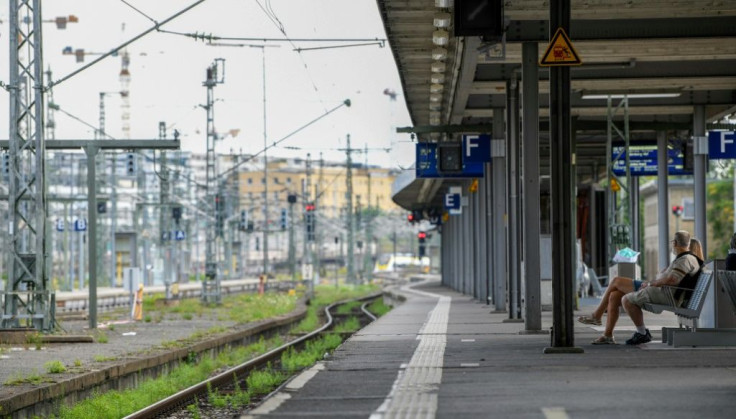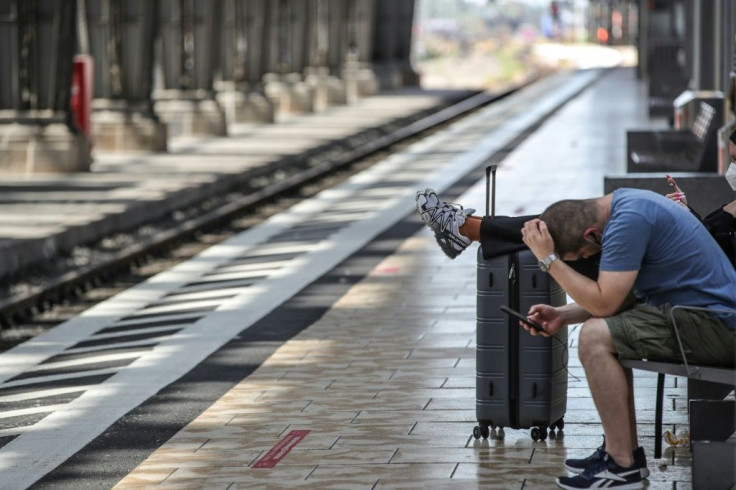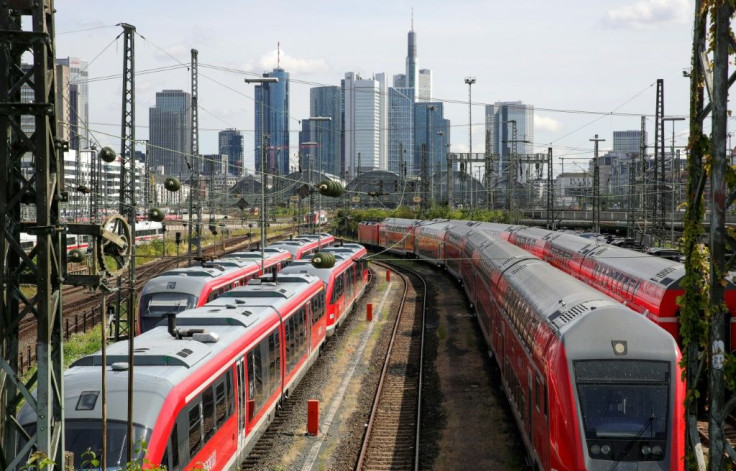Crowded Trains, Delays During German Rail Strike
A major strike by train drivers severely disrupted Germany's railway network on Wednesday, taking its toll on tourists at the height of the country's summer holiday season and aggravating supply chain woes.
The industrial action, which began on Tuesday on cargo services, spread to the rest of the network on Wednesday, with only "25 percent of long distance trains" in operation, according to Deutsche Bahn.
At Berlin's main station, the departures board was largely blank. Of the few trains shown, some were cancelled, others delayed.

"I think the strike is totally unnecessary," said Peter Gramlich, 78, who was travelling to the western city of Bochum to visit his mother-in-law with his wife Heike, 63.
The coronavirus pandemic makes the situation worse, according to Gramlich. "Our train will now be very full," he said, indicating the difficulty they will have social distancing from other passengers.
The strike is set to last until Friday at 2:00 am local time (0000 GMT).
Deutsche Bahn and the train drivers' union GDL failed to find agreement on future wage increases, leading to the walkout after an internal union ballot.

The union is demanding a 1.4-percent pay hike and a bonus of 600 euros ($700) for 2021, and a further wage rise of 1.8 percent in 2022.
Deutsche Bahn had offered to phase in a 3.2-percent wage increase in two steps in 2022 and 2023.
"I think this was the wrong time," said Matthias Hattendorf, 66, who turned up at the station early this morning to make sure he got a train home to Hamburg after visiting Berlin. "Tourism is starting to get going again. People want to travel."
In the German capital, local rail and tram services were also hit by the train drivers' strike.

"I'm going to be late for work. I'm going to have to take my bike tomorrow," said 19-year-old Lenard Warning, a trainee video editor.
Deutsche Bahn's freight service, DB Cargo, has also been "affected nationwide", the parent group said on Wednesday, risking further delivery delays for German businesses hit by shortages in raw materials and components from timber and steel to computer chips.
In total, Deutsche Bahn said around 190 of its cargo trains are stuck in the sidings.
Critics have accused GDL of using the strike to gain greater influence and attract members from larger union EVG -- which covers railway workers and public transport employees.
The fight for influence is all the more critical due to a rule that came into force this year stipulating that the collective deal negotiated by the biggest union applies across the sector.
On Wednesday, the GDL union leader Claus Weselsky raised the prospect of further strikes beyond Friday.
"I can't guarantee anything," he told the Dusseldorf-based newspaper the Rheinische Post. "The employer's side now has a chance to move and put forward a new offer."
The last major conflict between unions and DB took place between 2014-2015, when over nine months, GDL organised nine rounds of strikes to demand regulatory reforms.
The stoppage in May 2015 of six consecutive days has held the record as the longest in the company's history.
A shorter strike hit rail traffic in December 2018, when a stoppage was called for four hours.
© Copyright AFP 2024. All rights reserved.




















